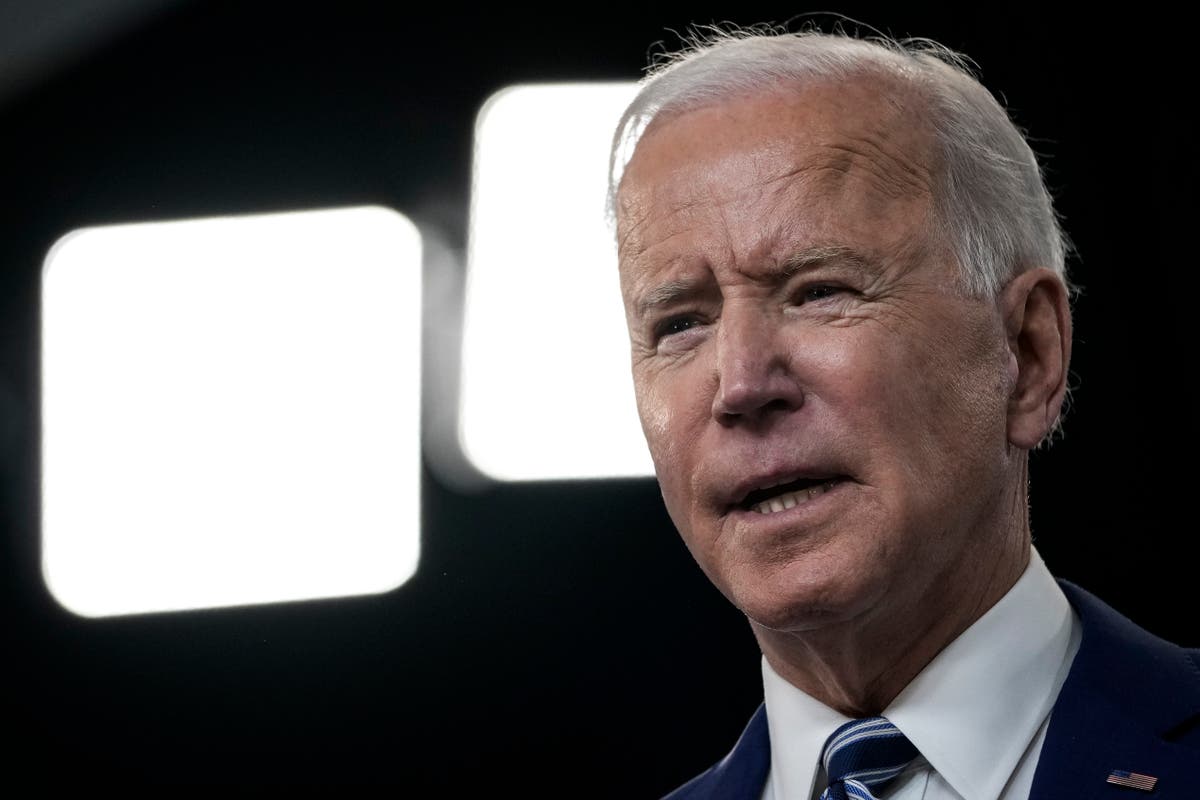
Joe Biden has unveiled a sweeping $2 trillion infrastructure proposal that he promises will usher the US into the 21st century, create millions of jobs and put the nation on a footing to compete with an ascendant Chinese economy.
“It’s big, yes. It’s bold, yes. And we can get it done,” the president said of his initial plan on infrastructure at an event in Pittsburgh on Wednesday.
The massive government spending package, which would be paid for by rolling back key components of the 2017 Trump tax cuts, is unlikely to receive any support from Republicans.
The new proposal, which would be even more expensive than Mr Biden’s $1.9 trillion Covid relief package from earlier this month, provides government spending in four main categories.
$621bn for traditional transportation infrastructure projects such as roads, bridges, and public transit.
$650bn for “modern infrastructure” that will affect Americans “at home”: broadband internet expansion, revamped water systems and electricity grids, massive investments in public schools facilities.
$400bn for “care infrastructure” projects such as schools, child care facilities, veterans’ hospitals and other federal welfare buildings.
and $580bn for research, development and training projects, including providing incentives for companies to keep manufacturing jobs in the nation’s “industrial heartland”.
Read more:
All of those projects would be geared towards sustainability and mitigating the causes and impact of the climate crisis.
For instance, Mr Biden’s infrastructure package would shovel $174bn into programmes to increase the US share of the electric vehicle (EV) market by establishing new tax incentives and sales rebates for consumer EV purchases. Billions would go towards grants and other incentives to spur construction of a national network of half a million EV charging stations by the end of the decade. And billions more would be put towards fulfilling his campaign promise to electrify the federal vehicle fleet.
Capitol Hill insiders agree Mr Biden’s infrastructure package is destined to become law in some way, shape or form through the budget reconciliation process that allows Democrats to sidestep Senate GOP obstruction.
Please enter your email address Please enter a valid email address Please enter a valid email address SIGN UP Thanks for signing up to the Inside Washington newsletter {{#verifyErrors}} {{message}} {{/verifyErrors}} {{^verifyErrors}} {{message}} {{/verifyErrors}} I would like to be emailed about offers, events and updates from The Independent. Read our privacy notice Thanks for signing up to the Inside Washington newsletter {{#verifyErrors}} {{message}} {{/verifyErrors}} {{^verifyErrors}} {{message}} {{/verifyErrors}} I would like to be emailed about offers, events and updates from The Independent. Read our privacy notice
That’s the same process Democrats used to hammer through Mr Biden’s Covid relief legislation earlier this month on a party-line basis.
Nevertheless, Mr Biden on Wednesday promised to invite Republicans to the negotiations to see if there is any room to manoeuvre on a bipartisan deal.
“I don't think you'll find a Republican today in the House or Senate ... who doesn't think we have to improve our infrastructure. There’s no reason why it can’t be bipartisan again,” Mr Biden said.
“The divisions of the moment shouldn't stop us from doing the right thing for the future. We're gonna bring Republicans into the Oval Office, listen to them, what they have to say, and be open to their ideas. We’ll have good faith negotiations with any Republican who wants to help get this done. But we have to get it done,” he said.
Raising tax rates on both corporations and households making at least $400,000 annually — two integral components of the 2017 GOP tax cuts — to pay for the infrastructure package likely makes it a non-starter for the GOP.
“Given the amount of tax increases that they’re discussing, there’s no way they’re going to be able to get anything done on a bipartisan basis,” Jim Manley, a longtime aide to former Senate Democratic Leader Harry Reid, told The Independent.
Democrats in Washington are also bracing for considerable internal strife, with progressives such as Senators Bernie Sanders of Vermont and Jeff Merkley of Oregon being more vocal with their demands for green energy investment and more aggressive tax code changes.
On the other end of the Democratic spectrum, West Virginia Senator Joe Manchin III looms as a potential foil for progressives pushing for more spending.
Mr Manchin has insisted that the cost of the infrastructure package be fully offset by tax hikes or trimming fat elsewhere.
Mr Manley indicated he has sensed “a certain amount of spending fatigue” among members of both parties after an unprecedented year of government spending to buttress the economy and healthcare system amid the coronavirus pandemic.
Congress has passed more than a half dozen bills worth more than $5 trillion in less than a year since Covid gripped the nation.
Nearly 40 per cent of that emergency spending was enacted this month when Mr Biden signed his first major piece of legislation, the $1.9 trillion American Rescue Plan.
“Some day people are gonna look back at this, and … the first bill’s going to be a walk in the park based on what they’re going to have to face the next go-round,” Mr Manley said.
“And potentially the next go-round after that,” he said, referring to the administration’s planned rollout in April of another economic package to expand health insurance coverage, subsidise child care, and make community college tuition-free, among other provisions.
Comments
Post a Comment